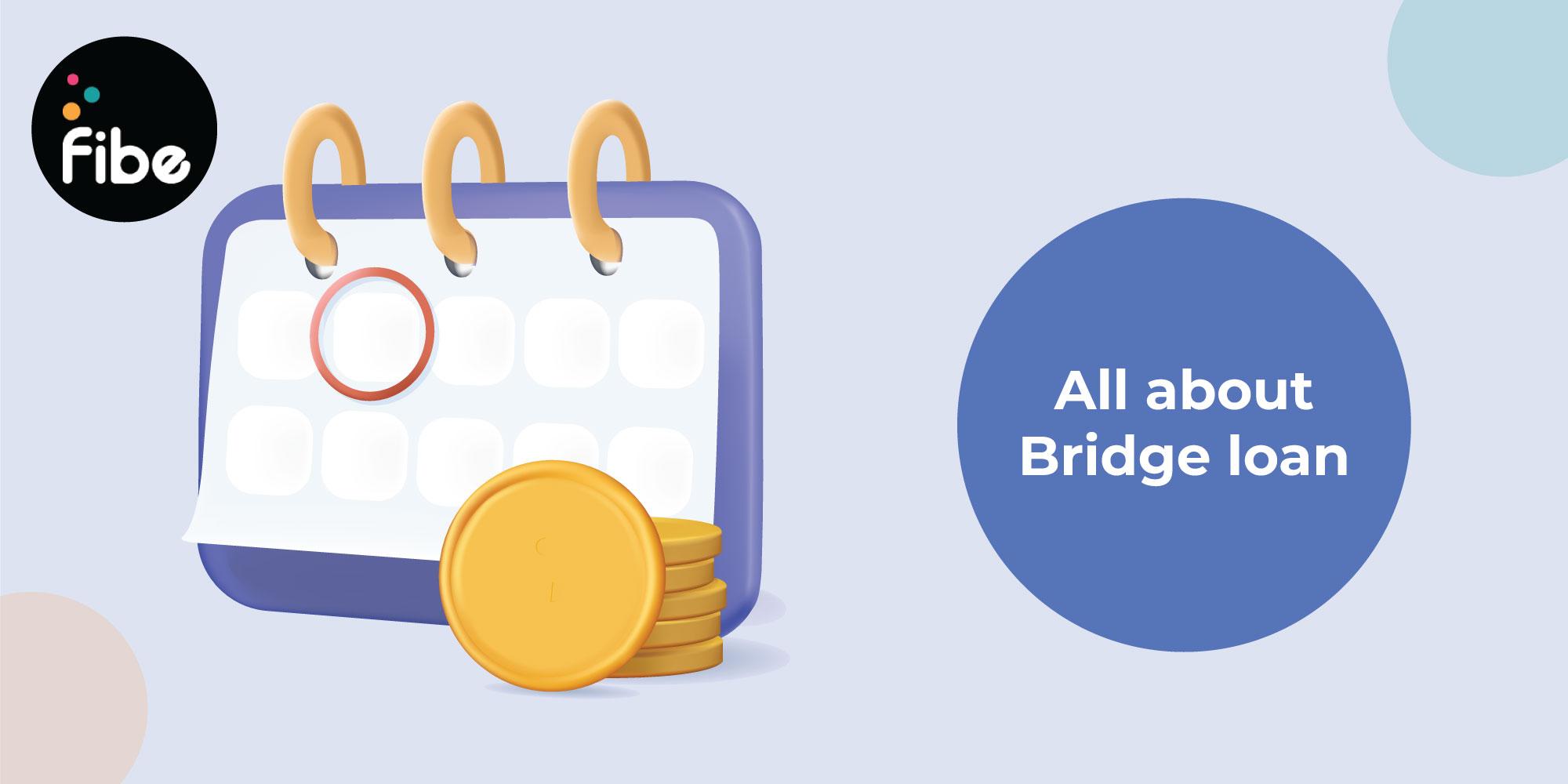- Home
- Blogs
- Personal Loan
- What Is Bridge Loan
Bridge Loans: Important Facts You Must Keep In Mind
Reviewed by: Fibe Research Team
- Updated on: 4 Dec 2023
Reviewed by: Fibe Research Team

Bridge loans are a type of financing option that, true to their name helps you bridge the gap between you and your goals. With advancements in fintech, getting loans for urgent requirements is now easier than ever. However, in some instances, you may face a delay and access to funds may take some time.
In such cases, you can rely on a bridge loan. With many lenders offering instant financing solutions for any personal or business requirement, you can find a suitable option quickly. This type of credit helps you get instant funds to maintain the required cash flow to attain your goals.
Read on to learn about bridge loans, how they work, their types, benefits and more.
A bridge loan is a type of credit option that provides you with funds for a short term to bridge the gap between immediate cash requirements and the availability of finance. Also called interim financing, swing loans, or gap financing, this loan comes with a tenure ranging from a few weeks to up to 2 years.
Generally, this loan is collateral-backed as lenders foresee a higher risk. The interest rates are also higher than other traditional loans, such as home, business and personal loans. However, most lenders have easy-to-meet eligibility criteria and offer financing of up to 80% of your requirement.
Also Read: Choose Instant Loan for Personal Use
To understand the bridge loan meaning and the way it works, consider this example: Say you want to buy a new property with the funds accumulated from selling another property. However, the buyer may not be able to make the fund transfer right away. In this case, you may find it difficult to make the payment for the new property on time.
In such cases, you can avail of bridge financing, with the new property as collateral. You can close the loan when you get the payment from the buyer in the near future. In addition to real estate purposes, you can also get this loan for personal financing, business expenses and other such purposes.
Generally, there are 4 types of loans that come under this category which are:
If you don’t have a fixed date of repayment, then you can choose a comfortable and longer loan tenure. Here, the lender decides your loan tenure as per your creditworthiness.
If you have a definite source of income expected at a fixed date, this reduces the lender’s risk. So, with a closed bridge loan, you can get finance at relatively lower interest rates.
This means that in the case of a loan default, the lender offering a bridge loan will have the primary claim on the property attached as collateral.
This means that if the borrower has availed another loan on the property, the bridge lender will get a second charge on the property.
Also Check: Instant Cash Loan In 5 Minutes
Here are some of the advantages you can enjoy with bridge financing:
To make a better decision, watch out for the following risks of getting a bridge loan:
Now that you know what is a bridge loan, you can decide if it is the right option to help you achieve your goals. Consider an Instant Personal Loan from Fibe to upgrade your life and meet short-term gaps.
With Fibe, you can get collateral-free funding of up to ₹5 lakhs at interest rates starting from 2% per month. Download our Personal Loan App or register on our website to get started.
A bridge loan is a short-term loan, so you get a tenure starting from 2-3 weeks. However, lenders offer up to 24 months as the maximum tenure.
Generally, you must pay a higher interest rate ranging from 12% to 20% when applying for bridge financing. The final rate will depend on your creditworthiness and the lender you choose.
Yes, while most lenders provide this loan for a shorter tenure of up to 12 months, you can extend it to up to 2 years.
Compared to a traditional loan, a bridge loan has a shorter tenure, higher interest rates, and generally requires collateral.